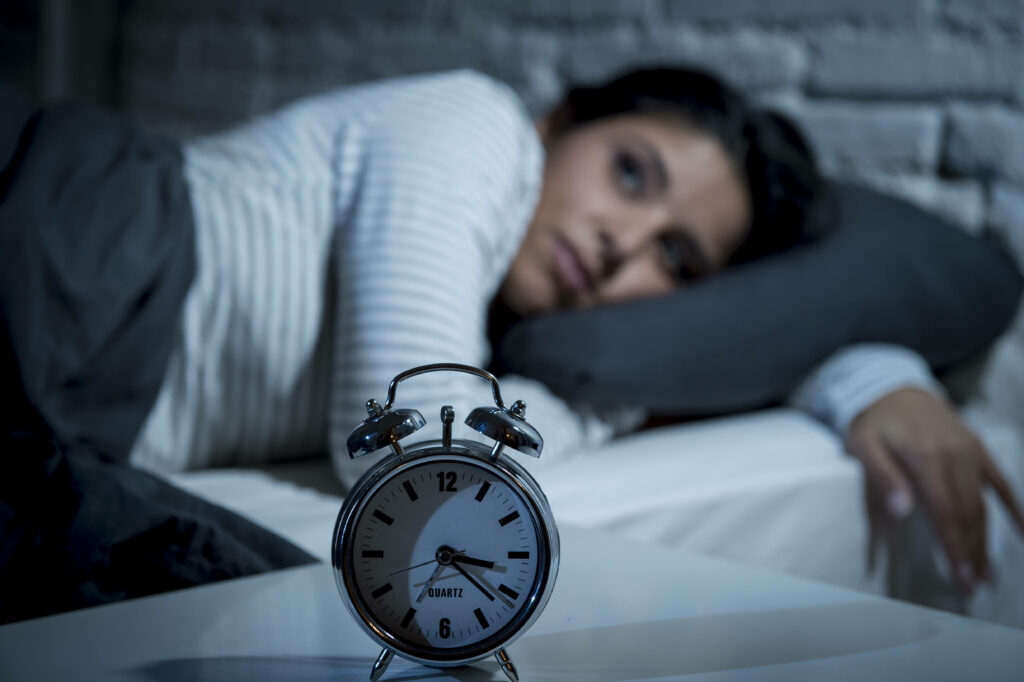
How To Know if You Have Insomnia
Are you having difficulty sleeping for weeks or even months at a time? Even if you fall asleep just fine, but consistently wake in the middle of the night or too early in the morning and can’t get back to sleep, you may be suffering from insomnia. The most common insomnia causes are stress, pain, and discomfort. Make sure you’re taking care of yourself to recharge daily with a restful night of sleep with these helpful tips. Otherwise, long-term insomnia can have harmful effects on your health.
According to an article from Geisinger Health, “If you notice that you’re having trouble sleeping, don’t write it off,” said Michael C. Marino, D.O., medical director of Geisinger Sleep Labs. “Sleep deprivation can cause a sleep debt that only gets worse with each passing day. This can increase your risk for heart disease and diabetes, so it’s important to talk to your doctor if you have consistent sleep problems.” (*1)
Reduce Stress Before Bed
If stress keeps you up at night, try to reduce your stress levels before going to bed. I know, I know, easier said than done. But even writing a list of things you have to do the next day an hour or two before bedtime will help ease your anxiety. A few other ways to help you sleep by reducing stress:
- Clear your mind. Recognize negative thoughts and realize that they are not true or simply don’t matter. Our mind tends to drift toward the negative, and recognizing that will help ease those thoughts. All that really matters is your health and happiness. Thinking of nothing will surprisingly bring about a feeling of deep calm and joy. Read the “Power of Now” by Eckhart Tolle for more ways to relieve stress and anxiety—it’s an incredible book for personal growth!
- Exercise daily: go for a walk or engage in other types of physical activity, but be sure that it is no later than 2 hours before bedtime
- Make your bedroom comfortable for sleep and only use it for sex or sleep.
- Limit screen-time an hour before going to bed. TV, smart phones, and other electronic devices emit a blue light that mimics daylight and can affect your ability to fall asleep.
- Take a relaxing bath or shower before bed
- Leave 30 minutes to relax and read or do another non-strenuous and non-electronic activity before going to sleep
- Practice deep breathing through your nose and out your mouth
Experiencing Insomnia Due To Pain?
What should you do when chronic pain, such as arthritis, back pain, or a lengthy surgical recovery causes sleep deprivation? According to The Sleep Foundation, “People with pain also feel less control over their sleep, worry more about lack of sleep affecting their health and exhibit greater sleep sensitivity. They’re more likely than others to say environmental factors make it more difficult for them to get a good night’s sleep. These factors include noise, light, temperature and their mattresses alike, suggesting that taking greater care of the bedroom environment may be particularly helpful to pain sufferers.” (*2)
When chronic or long-term pain is the issue, you may need to change your sleeping arrangements to a specialized power recliner that will help you find the perfect sleep position. UltraComfort’s UC558 power lift chair is a wonderful sleep solution. The patented Eclipse Technology creates a zero gravity experience for ultimate comfort and weight distribution. This innovative recliner chair also may attribute to health benefits, including elevating the feet above the heart, which could help improve circulation, and provide the full night’s sleep of your dreams.
“I would certainly recommend this to anyone with issues of sleep discomfort.”
According to Wesley Kinzie, M.D., “I have used this chair for both naps as well as sleeping through the night. The chair has many features that enhance comfort and wellbeing while using it. The positioning movement includes the seat box rising, which places the user in a position that is slightly flexed at the hips and knees. This decreases the tension on the hamstrings, as well as the sciatic nerve. The movement of the seat box combined with the independent movement of the back of the chair allows the user to comfortably achieve Trendelenberg position. This dependent or head-down position elevates the user’s legs allowing gravity to decrease swelling and edema of the feet and ankles. I would certainly recommend this to anyone with issues of sleep discomfort due to the support and positioning capabilities. In addition, many patients that have shoulder surgery can sleep in a somewhat reclined position… in which an individual cannot sleep on their side. The positioning would provide comfort allowing for continuous sleep necessary without tossing and turning side to side during the night.”
Everyday Tips To Get A Good Night’s Sleep
For the perfect night’s sleep, this Eclipse recliner chair, plus these pro tips from WebMD (*3) will surely bring you some Zs:
- Lower the thermostat: The ideal sleep temperature is between 65 and 72 degrees
- Wake up at the same time every day. It can be tempting to sleep in on weekends, especially if you haven’t slept well during the week. However, if you suffer from insomnia, waking up at the same time every day will train your body to sleep and wake at a consistent time.
- Eliminate alcohol and stimulants like nicotine and caffeine. The effects of caffeine can last for several hours, perhaps up to 24 hours, so the chances of it affecting sleep are significant. Caffeine may not only cause difficulty getting to sleep, but may also cause frequent awakenings. Alcohol may have a sedative effect for the first few hours following consumption, but it can then lead to frequent awakenings and a non-restful night’s sleep.
- Take medication early: If you are on medications that act as stimulants, such as decongestants or asthma inhalers, ask your doctor when they should best be taken to help minimize any effect on sleep.
- Limit naps. While napping might seem like a good way to catch up on missed sleep, it might affect your sleep at night. It’s important to establish and maintain a regular sleep pattern and train yourself to associate sleep with cues like darkness and a consistent bedtime.
- Don’t eat or drink right before going to bed. Eating a late dinner or snacking before bed can activate the digestive system and keep you up. If you suffer from acid reflux or heartburn, it’s even more important to avoid eating and drinking right before bed since this can make your symptoms worse. Also, having a lot to drink before you go to sleep will cause you to wake at night to go to the bathroom.
- Make your sleeping environment comfortable. Temperature, lighting, and noise should be controlled to make the bedroom conducive to falling (and staying) asleep. You should feel comfortable and if you have a pet that sleeps in the room with you, consider having the pet sleep somewhere else if it tends to make noise in the night.
Be sure to take care of yourself and contact your doctor or a local sleep center if you continue to experience insomnia, despite trying these tips. Sleep deprivation symptoms can include lack of concentration, memory loss, fatigue, irritability, low energy levels, and depression. (*4) Your medical provider may need to prescribe sleep medication or conduct a sleep study if your insomnia continues.
*Resources:

